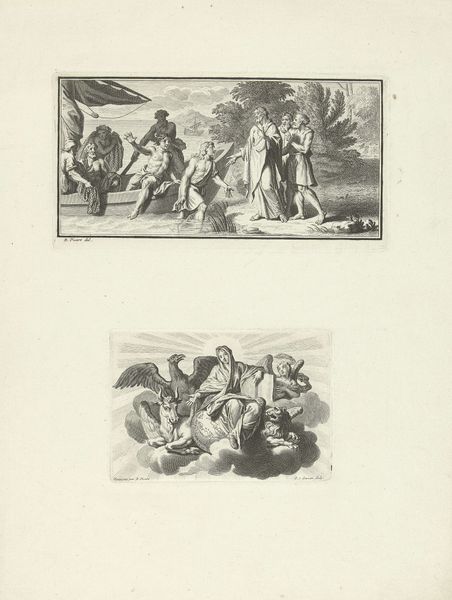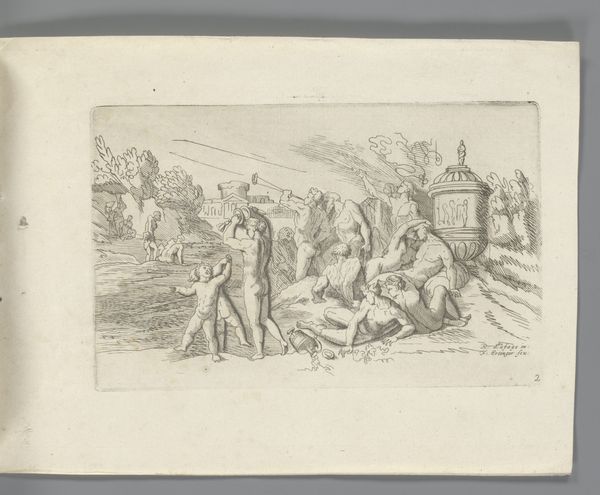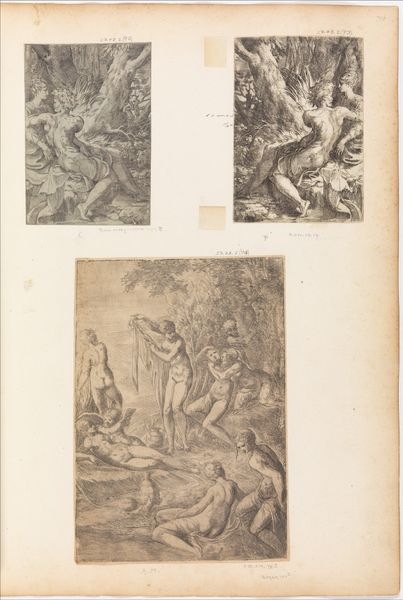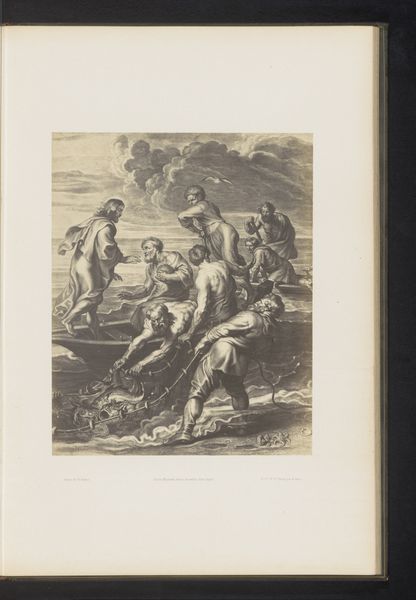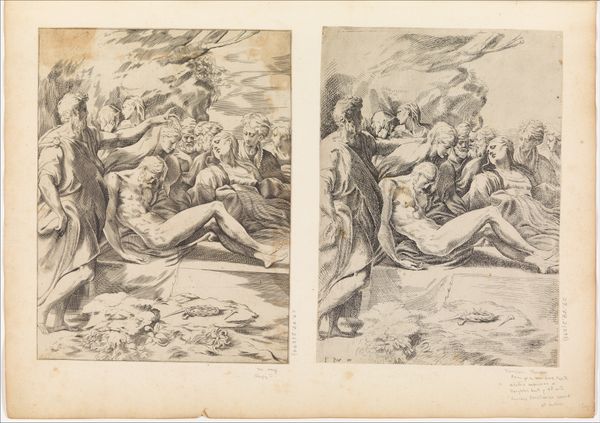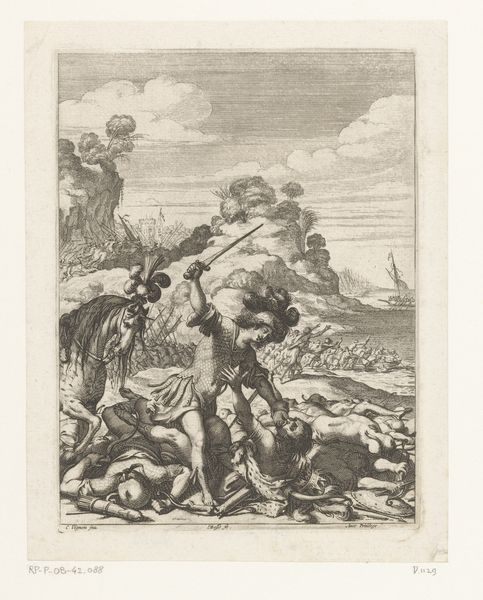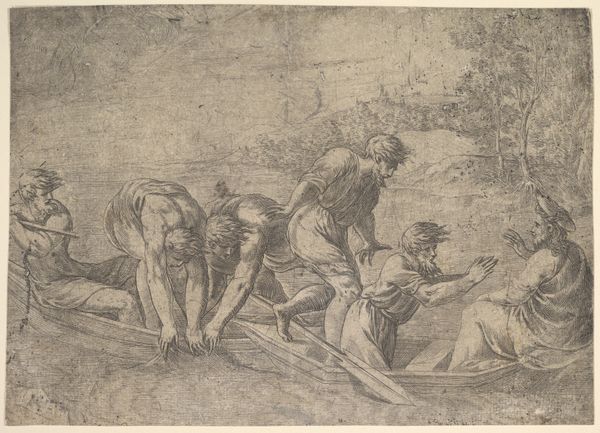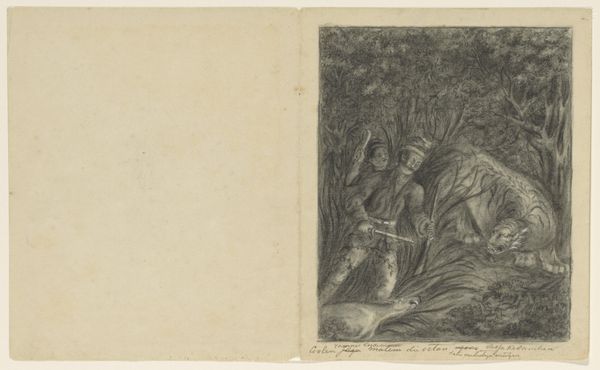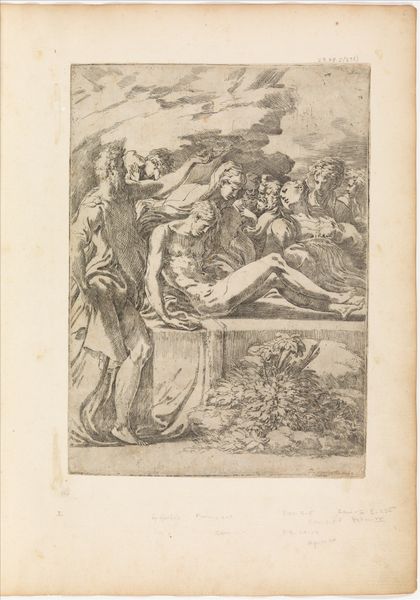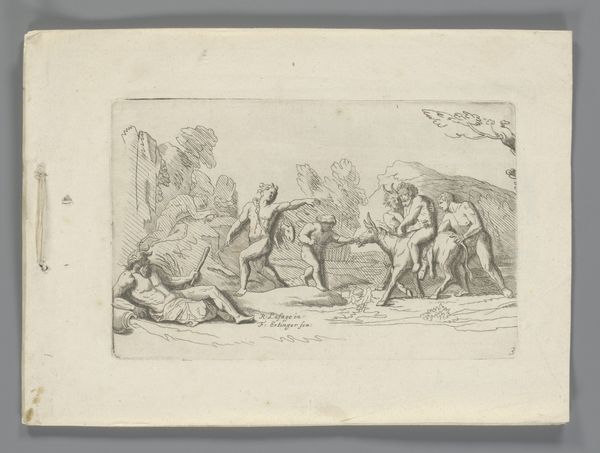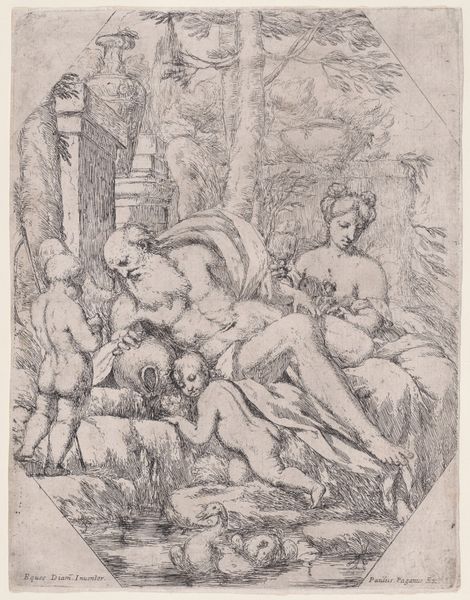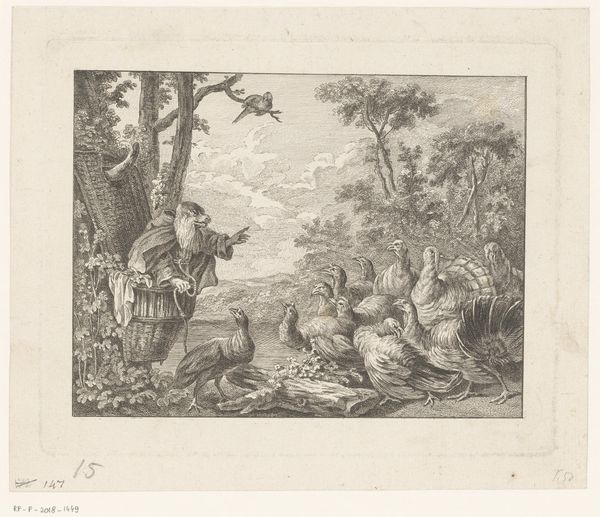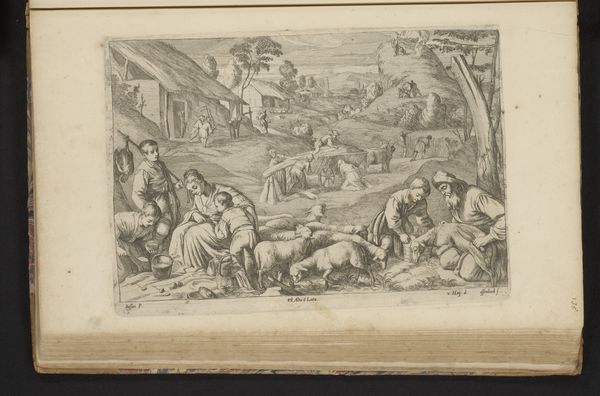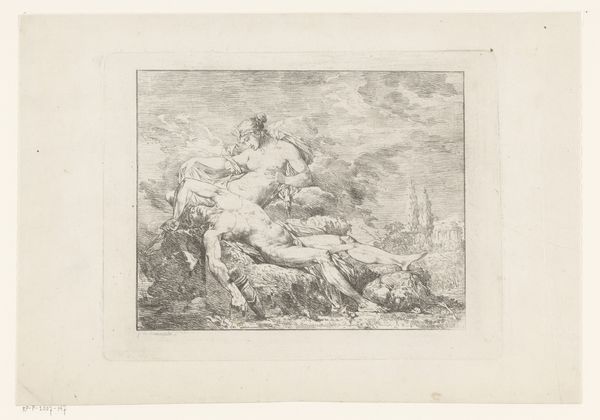
Moses and the Burning Bush 1510 - 1563
0:00
0:00
drawing, print, etching, paper
#
drawing
#
narrative-art
# print
#
etching
#
landscape
#
figuration
#
paper
#
11_renaissance
#
history-painting
#
italian-renaissance
Copyright: Public Domain
Andrea Schiavone made this print, Moses and the Burning Bush, sometime in the mid-16th century. He employed etching, a printmaking process that democratized image production. With etching, a metal plate is coated with a waxy, acid-resistant ground. The artist scratches an image into this ground, exposing the metal. When the plate is bathed in acid, the exposed lines are eaten away, creating grooves. These grooves hold ink, which is then transferred to paper under pressure. The resulting print is a mirror image of the original design. The appeal of etching lies in its relative ease and the linear quality it produces, similar to drawing. Schiavone, however, uses the etching needle in a painterly way, with a loose, free handling of the figures. The process allowed artists to make multiple originals, and to disseminate their compositions widely. This facilitated the development of a visual culture driven by commerce, rather than artistic innovation alone. By valuing the touch of the artist and by understanding the processes through which it was made, we can expand our understanding of this print.
Comments
No comments
Be the first to comment and join the conversation on the ultimate creative platform.
